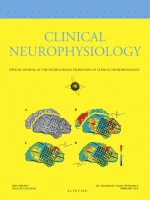Dr. Sridevi Sarma, Assistant Professor of Biomedical Engineering, has been selected as the recipient of the 2015 Robert B. Pond, Sr. Excellence in Teaching Award for outstanding undergraduate teaching. The award recognizes “commitment to and excellence in instruction in the Whiting School of Engineering, success in instilling the desire to learn, and dedication to undergraduate students.” In testimonials supporting Sri’s nomination, students repeatedly described Sri as enthusiastic, approachable, and highly knowledgeable. They lauded her for her ability to elucidate complex topics, such as the Controls section of Systems and Controls, a course she co-teaches with fellow ICM core faculty members Michael Miller and René Vidal.
The award was presented to Sri at the annual Whiting School of Engineering Convocation Awards Ceremony on Monday, May 4.
Congratulations, Sri, on this well-deserved achievement!


 Research from the lab of
Research from the lab of